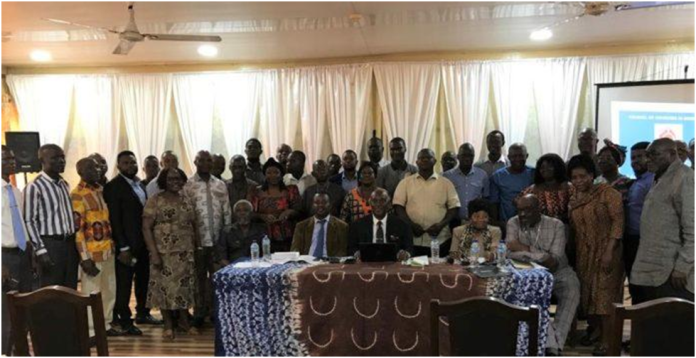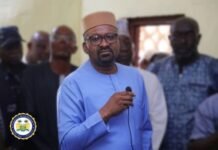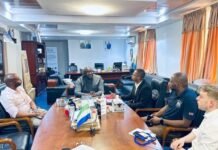By Amin Kef-Ranger
The Council of Churches in Sierra Leone (CCSL), which currently has a membership of 24 full members and 9 affiliate members has as one of its strategic directions the promotion of good governance with three (3) broad activities namely: Supporting peace with justice activities, supporting the consolidation of democracy initiatives and building effective leadership of the Council.
In a recent statement it issued out, the CCSL stated that by participating in the country’s election process as observers and monitors, it aims to
promote citizens’ participation in the elections in particular and generally in public life, encourage a peaceful campaign and election environment, deter possible election irregularities and fraud as well as make recommendations to the Electoral Commission of Sierra Leone (ECSL) and report findings to the Commission and the public in an accurate and timely manner.
The faith-based organization emphasized that the primary concern of a non-partisan group like the CCSL in participating in the election process of the nation is to protect the integrity of the electoral process regardless of who wins or loses.
It continued that in preparation for that task and for a positive involvement in the electoral process, the Council of Churches in Sierra Leone has organized over the past six weeks a series of consultative workshops facilitated by experts in the legal and electoral fields. The said workshops involved primarily leaders of the two principal Faiths in the country — Christianity and Islam.
The workshop participants reviewed the Government White Paper on the recommendations of the Justice Cowan Constitutional Review Commission; critically examined the proposed Public Elections Bill and the constitutional provisions with regard to the electoral systems that are operative in our country.
Issues that were raised and discussed over included the insistence on a 4-tier election on the same day, the threshold of 50% + 1 for the elections of the President, the reference to the proportional representation electoral system.
The CCSL noted that the necessary amendment has been made to the Local Government Act thus making it legally possible to hold Local Government Elections in tandem with Presidential and Parliamentary Elections.
Council came out with the view that in a country with a high percentage of illiteracy and whose politics is influenced by colour rather than political ideology multi-tier elections is viewed as critical and lends itself to suspicion of encouraging election fraud.
According to CCSL, it becomes all the more critical against a background in a country of just over 3 (three) million registered voters being called upon to vote for 17 (seventeen) political parties.
Council revealed how it is cognizant of the current debates on the electoral systems as contained in the country’s constitution and regards such as a positive demonstration of the level the country’s democracy has attained.
Council also holds the view that whatever electoral system is to be introduced into the electoral process, the people should receive adequate education/sensitization to fully understand the electoral/constitutional provisions governing the system.
In addition, the Council of Churches in Sierra Leone stated that it is following quite keenly the ongoing debate on the Public Elections Bill and guided by experts’ opinion calls for a close scrutiny of the bill so that it may not appear contrary to the 1991 constitution of Sierra Leone.
Giving an instance, it stated that whilst Council welcomes stipulating a fixed date for elections, Council holds it must sync with the stipulations of the current constitution dealing with the end of a presidential term of office and the going to the polls to fill the vacancy.
CCSL also noted that there are a few issues that need to be made clear not least for the benefit of the populace furthering how it believes that the National Identification Number (NIN) is good but it must not be made a condition for voter registration at this point in time.
Concluding, the CCSL said as an organization that prides itself as the Voice of the Voiceless and on successes it has achieved as an Advocacy Group, it urges that in all of these the interest of the populace must be the priority of all concerned.
It insisted that any faux pas (wrong step) in the whole process will come to haunt the nation as posterity is always a hard judge of present actions maintaining that if the interest of the people must be in the vanguard then high premium must be put on civic education and voter sensitization.




